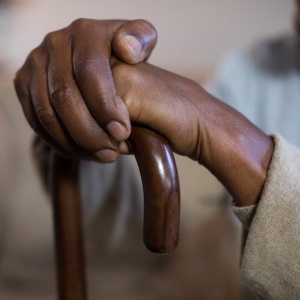
Few families remain untouched by the reality of dementia. It not only affects those who have dementia themselves, but can have a profound effect on loved ones as well as caregivers.
In South Africa alone, there are approximately 2.2 million people who have some form of dementia, according to Alzheimer's South Africa. That is just over one in every twenty people.
Facts and tips
Worldwide, the World Health Organization estimates that up to 50 million people could be living with dementia, and that this number is likely to increase sharply in the next 30 years.
Here are some facts and tips for all individuals, carers and families who are dealing with dementia:
- Alzheimer's disease affects 90% of people with dementia, but that is by no means the only form. Other medical conditions, such as cognitive damage from head injuries or a stroke can also cause dementia.
- Dementia affects the way in which the brain works and affects a person's memory, the working of the body, emotional capacity, behaviour and their way of thinking. This can be distressing for families, as memory loss may make someone forget those closest to them, and it can make someone's behaviour unpredictable.
- Dementia is a condition with a slow onset, and the first signs can be a bit of forgetfulness and confusion, with most recent events, such as the last meal or the previous day's shopping trip not being recalled. Many of the symptoms of the condition can be mistaken for normal signs of ageing. Other symptoms include getting lost in places that should be familiar, missing appointments, repeating questions, forgetting conversations and misplacing possessions.
- Dementia does not only affect older people. Early onset dementia is when it is diagnosed in those under the age of 65 – it can occur as early as ones 30’s, 40’s or 50’s. Whilst an early diagnosis can be difficult to come to terms with, it does provide the benefit of more time, so families can plan in advance to minimise impact. For an individual diagnosed with early onset dementia, the key areas to consider in forward planning include maximising health and long-term care options as well as legal aspects and financial planning.
- Scientists do not know what exactly causes dementia, but they do know what effect it has on the brain. The causes are thought to be environmental, genetic and lifestyle-related. There is no cure, and treatment consists of medication that can help to improve memory function. Research studies are ongoing, but it certainly appears as if mentally challenging the brain can delay the onset of dementia. Cognitive stimulation by means of activities, such as board games, puzzles and group activities, help with preserving memory, and keeping people socially engaged.
- Caregivers are encouraged to create a peaceful and calm atmosphere and predictable routine in which the dementia patient will feel safe. Experienced caregivers recommend that you respond to the patient's reality instead of forcing your own on them. Don't argue – it's pointless, as it will only agitate the person in your care, and won't solve anything. Distract their attention rather than confronting the patient. The patient cannot control or change their behaviour and their anger is not directed at you. When the person becomes agitated, take a break and switch to another activity, or leave the room quietly. They might very well have calmed down a few minutes later. Participate in activities that they enjoy or enjoyed in the past. Just because someone has dementia, it doesn't mean they don't have feelings. Visits from loved ones can also help to fulfil social needs.
- It is essential that caregivers of dementia patients don't forget to take care of themselves.
- Families need to make long-term plans for care of the family member with dementia. Alterations to the home might be needed, and carers might need to be engaged. There might come a time when it is no longer possible to care for the person at home, and specialised dementia care facilities need to be considered. There are also major financial considerations for the family, and decisions must be made in advance with regards to who will manage this person's finances and medical decisions when they will no longer be able to do so themselves.
Ivan Oosthuizen is CEO of Livewell Villages, specialists in dementia and memory care facilities.
Sources:
1. Alzheimer's Disease International
2. Alzheimer's South Africa
3. World Health Organization
Image credit: iStock




 Publications
Publications
 Partners
Partners











